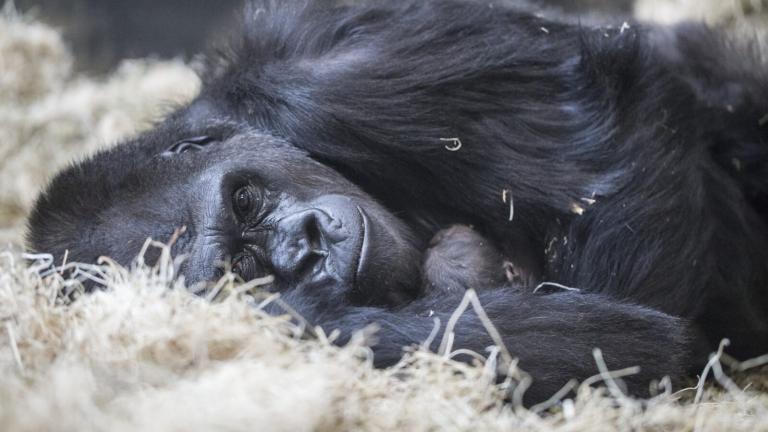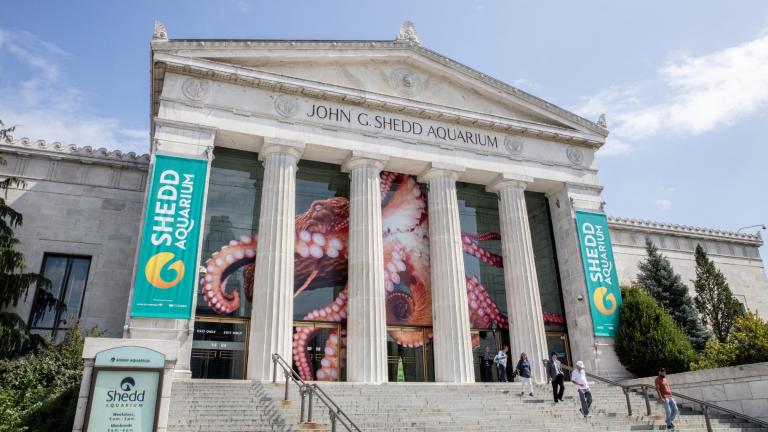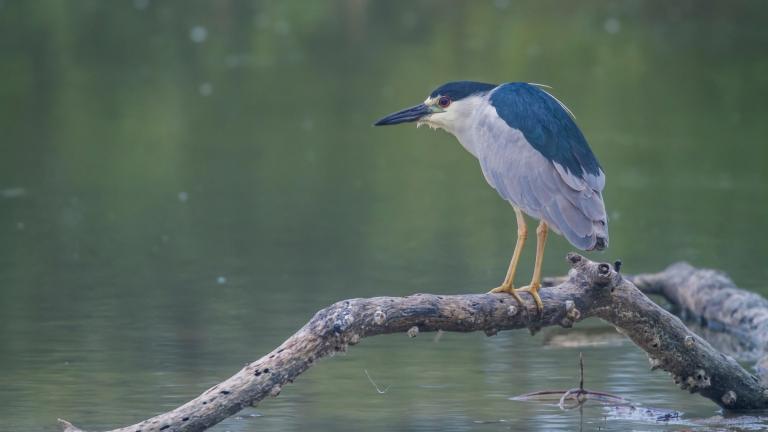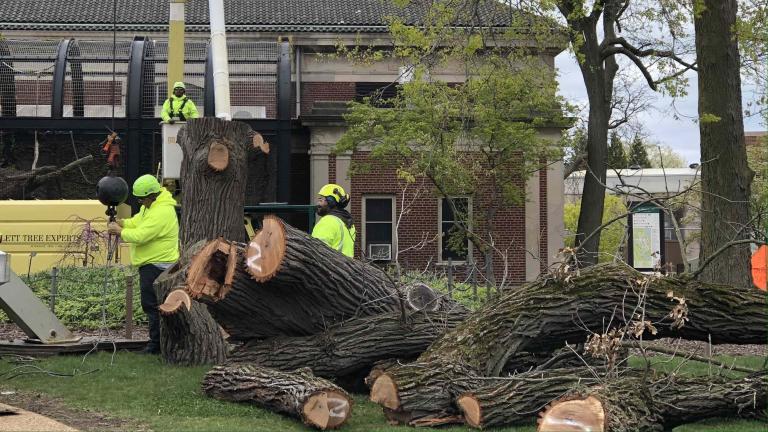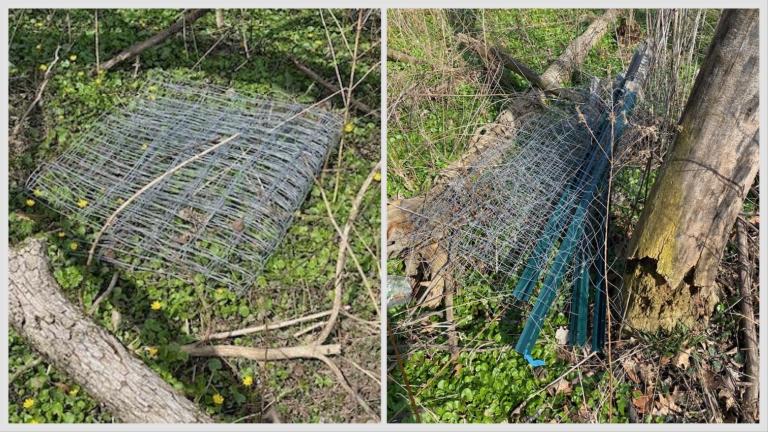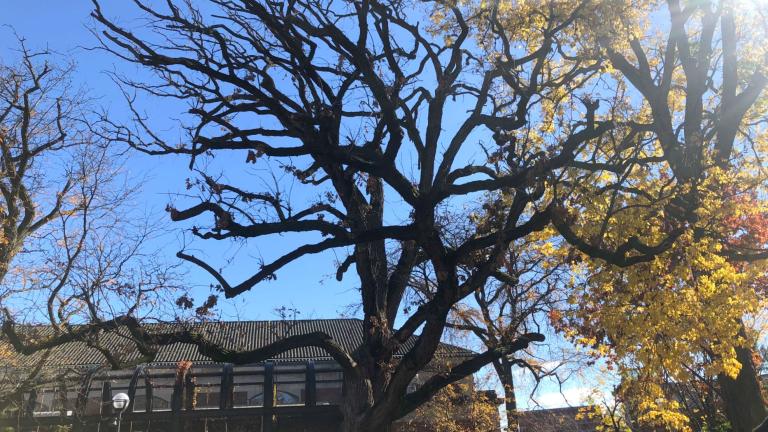 Ivory seized Feb. 2 from poachers convicted of killing 11 elephants in and around Nouabale-Ndoki National Park in the Republic of Congo. (Z. Labuschagne / Wildlife Conservation Society)
Ivory seized Feb. 2 from poachers convicted of killing 11 elephants in and around Nouabale-Ndoki National Park in the Republic of Congo. (Z. Labuschagne / Wildlife Conservation Society)
Armed with a satellite phone and a map, Lincoln Park Zoo conservation scientist David Morgan helped coordinate the arrest of three notorious elephant poachers operating deep inside a remote rainforest in the Republic of Congo.
Morgan, who co-directs a permanent research site for the zoo in the country’s Nouabale-Ndoki National Park, was at his home in St. Louis on Jan. 25 when researchers from his team first heard shots of gunfire and alerted park rangers.
Using a satellite phone provided by the zoo, Morgan texted with colleagues and park officials as ranger teams were deployed to intercept a gang of six poachers as they tried to exit the forest.
After dusk on Feb. 2, the poachers were nearing the park border when members of one ranger unit interecepted them and ordered them to drop their weapons, which included an AK-47. The poachers ignored the demand and opened fire, exchanging shots with the rangers until two backup teams arrived, at which point the poachers dropped 70 kilograms of ivory from 11 elephants they had killed, and fled.
Three days later, the poaching gang was still at large when park law enforcement agents and police tracked down and arrested three of the poachers in the nearby logging town of Pokola. The three men, all from the neighboring Democratic Republic of Congo, were tried and convicted Feb. 15 and sentenced to five years in prison and a fine of $10,000 each, the largest possible sentence for wildlife crime in the Republic of Congo.
The entire incident was detailed by the Wildlife Conservation Society, which manages the national park along with the Congo government.
“This is a huge area to cover, and it’s really only because the scientific teams were out there doing their studies that they were even able to keep track of where the poachers were,” said Lincoln Park Zoo’s Stephen Ross, who oversees the research site as part of the Goualougo Triangle Ape Project. “My understanding is that they were able to cut them off and ambush them by knowing what direction they were heading.”
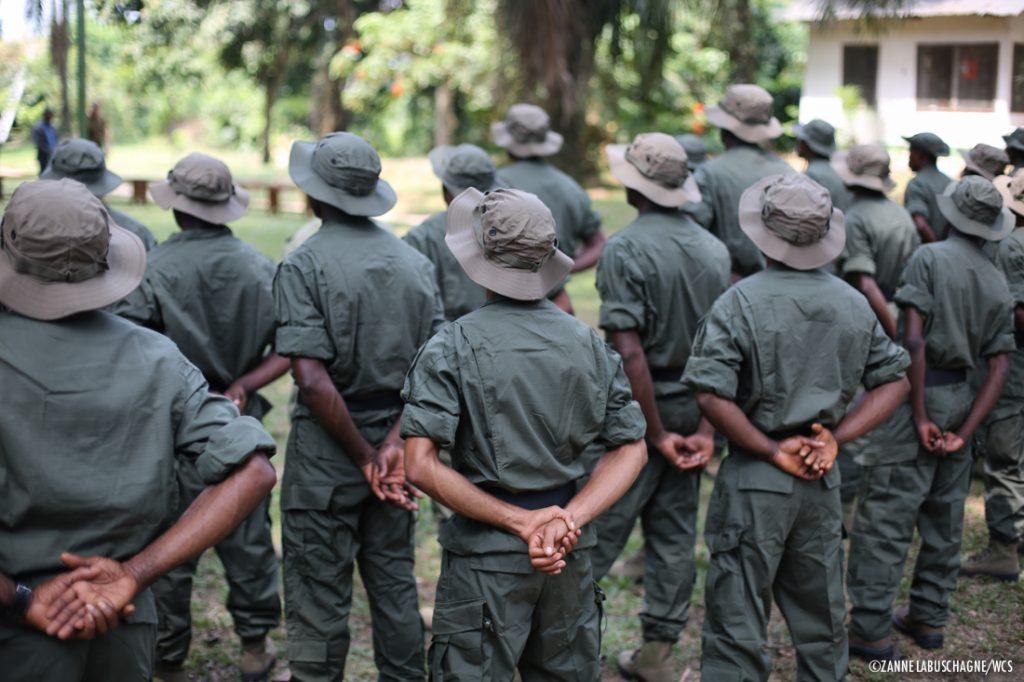 Park rangers at the Nouabale-Ndoki National Park in the Republic of Congo (Z. Labuschagne / Wildlife Conservation Society)
Park rangers at the Nouabale-Ndoki National Park in the Republic of Congo (Z. Labuschagne / Wildlife Conservation Society)
The head of the poaching group remains at large, along with two other members. The three convicted poachers admitted to their involvement in multiple illegal incursions into the national park, and to removing a total of nearly 400 kilograms of ivory from the forest over the past four years.
The poachers are known to have links to some of the country’s most notorious elephant poachers and ivory traffickers, according to WCS.
“Over the past several years, there’s been evidence of an [increased] human presence and poaching,” said Ross, who has traveled to the research site, an area about half the size of Chicago on the edge of Nouabale-Ndoki National Park. “People are willing to go through great risks to get [ivory], especially in areas with relatively poor economic systems.”
Ross said the research area, known as the Goualougo Triangle, has been called “the last Eden” because it remains almost entirely untouched by humans.
Morgan and his wife, Crickette Sanz, have studied the species in the region since the late 1990s, working alongside dozens of local residents and other scientists from a campsite inside the jungle.
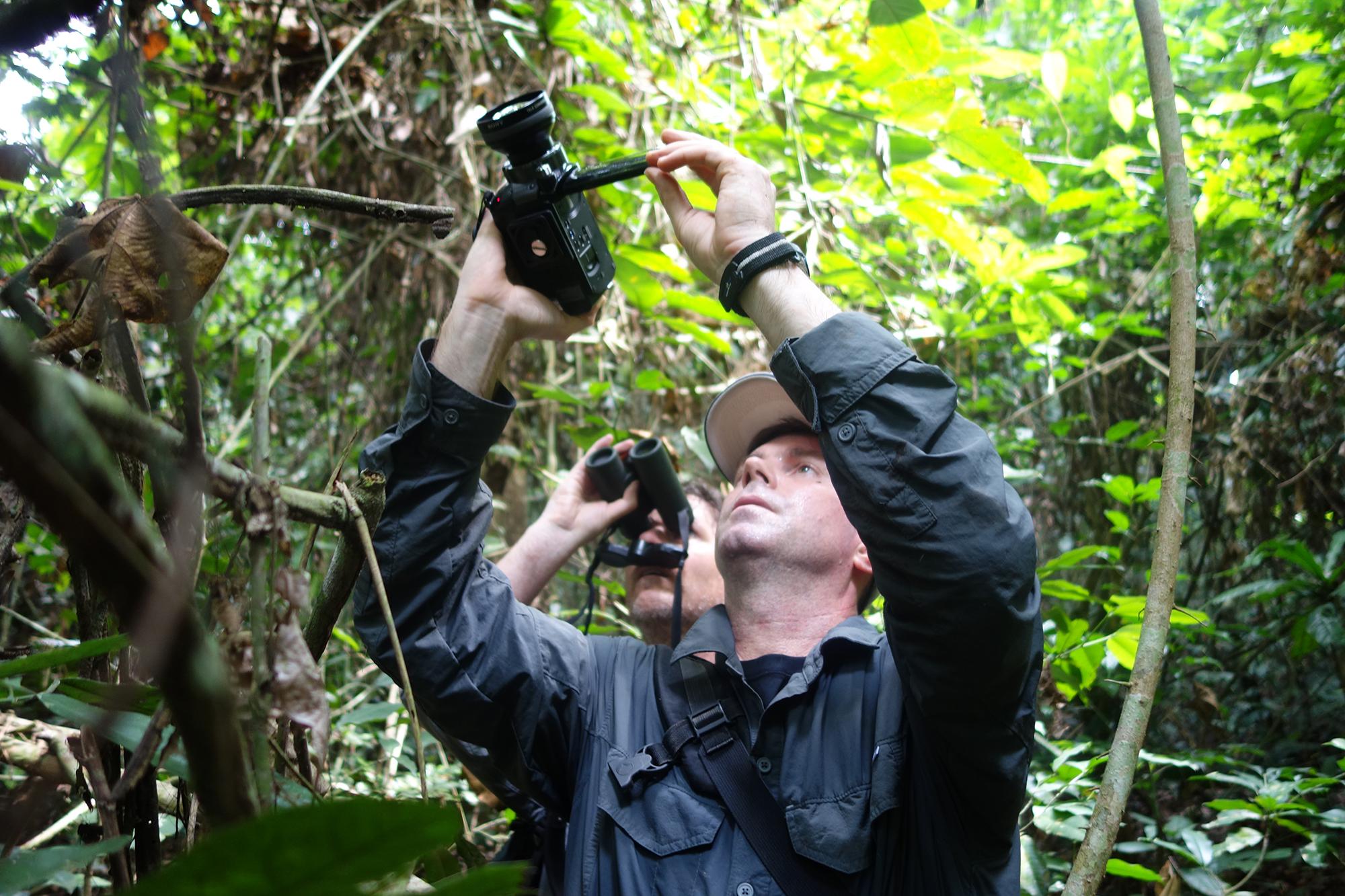 Lincoln Park Zoo conservation scientist David Morgan (Courtesy of Lincoln Park Zoo)
Lincoln Park Zoo conservation scientist David Morgan (Courtesy of Lincoln Park Zoo)
Morgan and Sanz, associate professor of biological anthropology at Washington University in St. Louis, live at the site for several months at a time to track chimpanzees and gorillas through the forest and monitor their unique behaviors, logging their observations on laptops powered by solar panels at the campsite.
“It’s really one of the only places in the world where you’re going to see a chimpanzee and a gorilla in the same tree at the same time, along with an elephant in the same sightline,” Ross said.
The chimpanzees and western lowland gorillas found in the Goualougo Triangle belong to the same species as those living at Lincoln Park Zoo, Ross said.
Contact Alex Ruppenthal: @arupp | [email protected] | (773) 509-5623
Related stories:
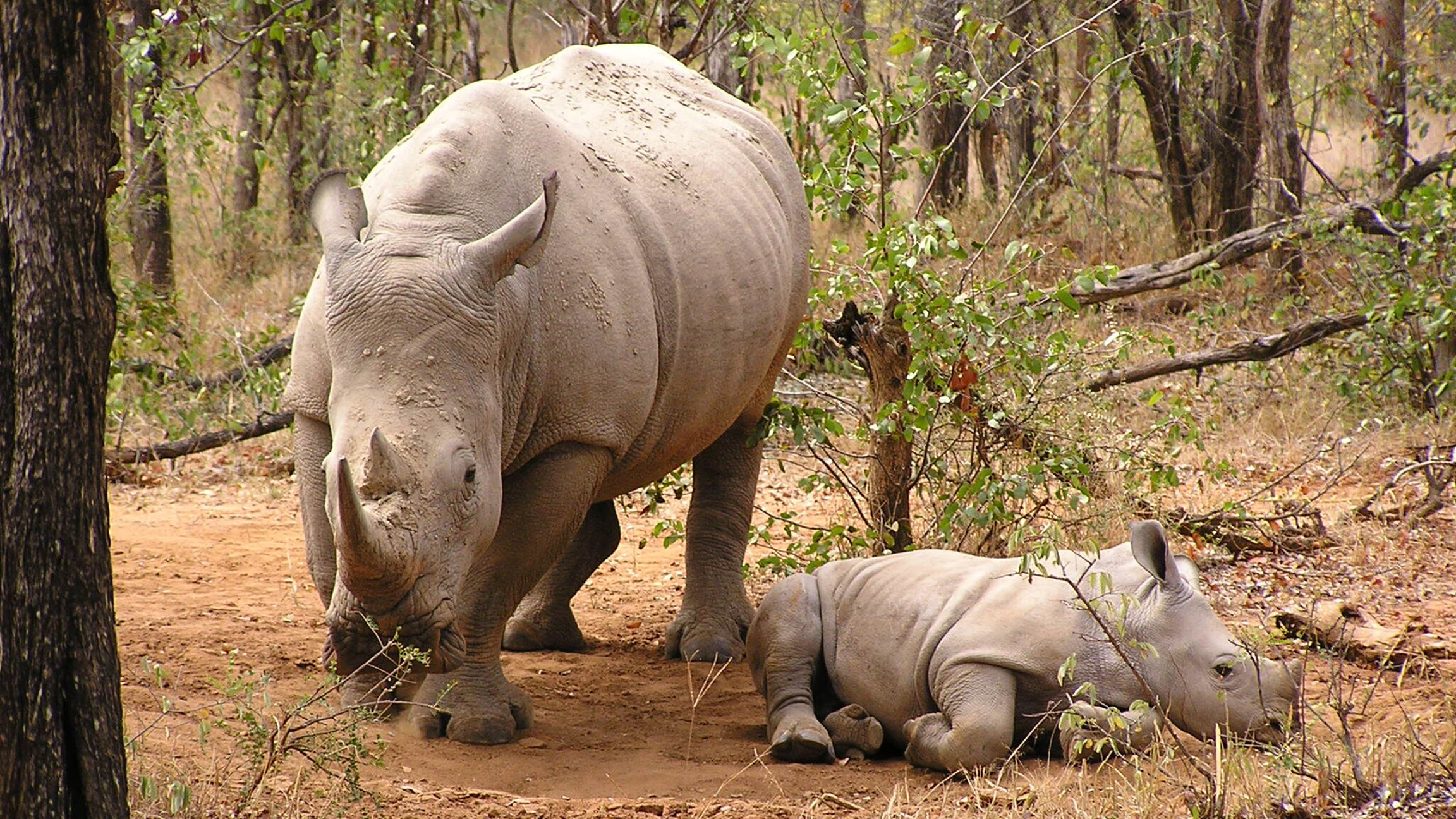 Conservationist Pioneer Helps Zimbabwe’s Rhinos Bounce Back
Conservationist Pioneer Helps Zimbabwe’s Rhinos Bounce Back
Sept. 26, 2017: Meet Clive Stockil, a conservationist being honored in Chicago who is helping Zimbabwe’s rhinos bounce back from the threat of extinction.
 From Elite Soldier to Anti-Poaching Crusader
From Elite Soldier to Anti-Poaching Crusader
Oct. 26, 2016: Meet a former elite soldier from Australia who is now using his special set of skills to combat poaching in Africa.
 Brookfield Zoo Donates Black Rhino Horn to Feds for Training
Brookfield Zoo Donates Black Rhino Horn to Feds for Training
Sept. 23, 2016: On Thursday, World Rhino Day, the zoo donated a piece of horn from one of its black rhinos to the U.S. Fish and Wildlife Service. The agency will use the sample to train its canine unit that sniffs out contraband at O’Hare International Airport.

